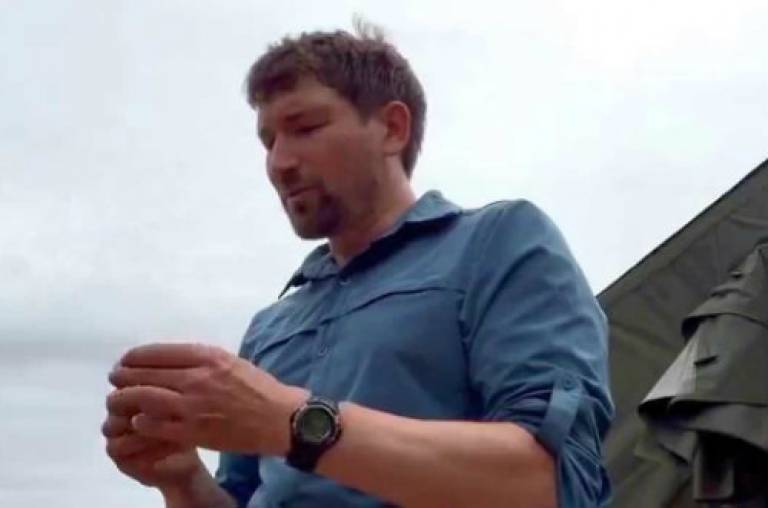Spotlight on Provost's Teaching Award 2016 winner Dr Matt Pope
22 July 2016
Dr Matt Pope, Senior Research Fellow (UCL Institute of Archaeology) received a Provost's Teaching Award at this year's Teaching and Learning Conference.

What did your win highlight?
The award highlighted how I’ve tried to align parts of our research focus at UCL alongside my teaching at the Institute of Archaeology over the past four years. One way we have attempted to do this within our Archaeology of Human Evolution research group is to organise a lunchtime discussion session, ‘Palaeolunch’, to focus on recently published research papers in the field. The sessions are open to all staff and students, and provide an open and informal extension to teaching and research spaces where new ideas can be digested as a group and subject often to quite lively and critical review. Often I will try to pick subjects which are being covered in that week’s teaching, so the sessions become an extension to the more formally taught course content.
Getting students to see fast moving academic research, and to see their peers and staff/research students grapple with understanding research papers hot-off-the-press is really valuable. It provides a forum for our students to see how the body of academic knowledge is created and digested and I think it helps to prepare them for their own critical approaches towards study and research. This is backed up by social media feeds advertising and discussing the subject.
The award also highlights my involvement in Prim Tech, our first year experimental archaeology course, and my involvement in running student training excavations. Both are extensions of the classroom and lab environments at UCL, where students are exposed to live research and experiments.
If I can point to any moment in the past two years which epitomises research-based teaching to me, it was gathering our students together to explain why our team thought there was a good chance we had found evidence for Ice Age art on our Jersey excavation in 2015. Late into the evening at our base we discussed as a team our thought process, our doubts and what the significance would be if we were right. Trusting them with our uncertainty, allowing them to be party to the discussion amongst our research team and asking them to keep the discovery secret until the press release, dissolved the barriers between staff and student, between teaching and research in a fundamental way. We emerged from the field as a research team, with a shared exciting discovery and a shared new understanding of our site and its significance.
I think the outcomes of this kind of research-led teaching experience go far beyond the academic, they help to cement professionalism and the values of teamwork and trust. Most important of all is sharing with the students the uncertainty of research, the depth of our ignorance in real-time, it’s only by being honest with our students about what we don’t know, that they can understand how the process of discovery and understanding is really followed through.
What does this award mean to you?
It’s an award really for the UCL Institute of Archaeology, the scope and support I’ve been given to innovate, the legacy I’ve been trusted with in running a long standing successful project like Prim Tech, and the quality of the students we get to invite on our research excavations. The award shows these things matter and they work - I find it exciting to play my part in it.
What new ways of teaching are you looking into at the moment?
We are currently scoping the expansion of field research and of stepping up the complexity of the experiments at Prim Tech. It would be great to develop field facilities to run archaeological experiments all year round and link classroom teaching and student projects in the field more firmly.
What advice would you give to a colleague who would like to be more innovative in their teaching?
Research-based teaching should be about letting the students see backstage, it’s not about slick performance, it’s about gritty realism and honesty. In discussion sessions and the field, established teaching and research staff can work directly alongside our students to arrive at new understanding and make new discoveries.
 Close
Close

